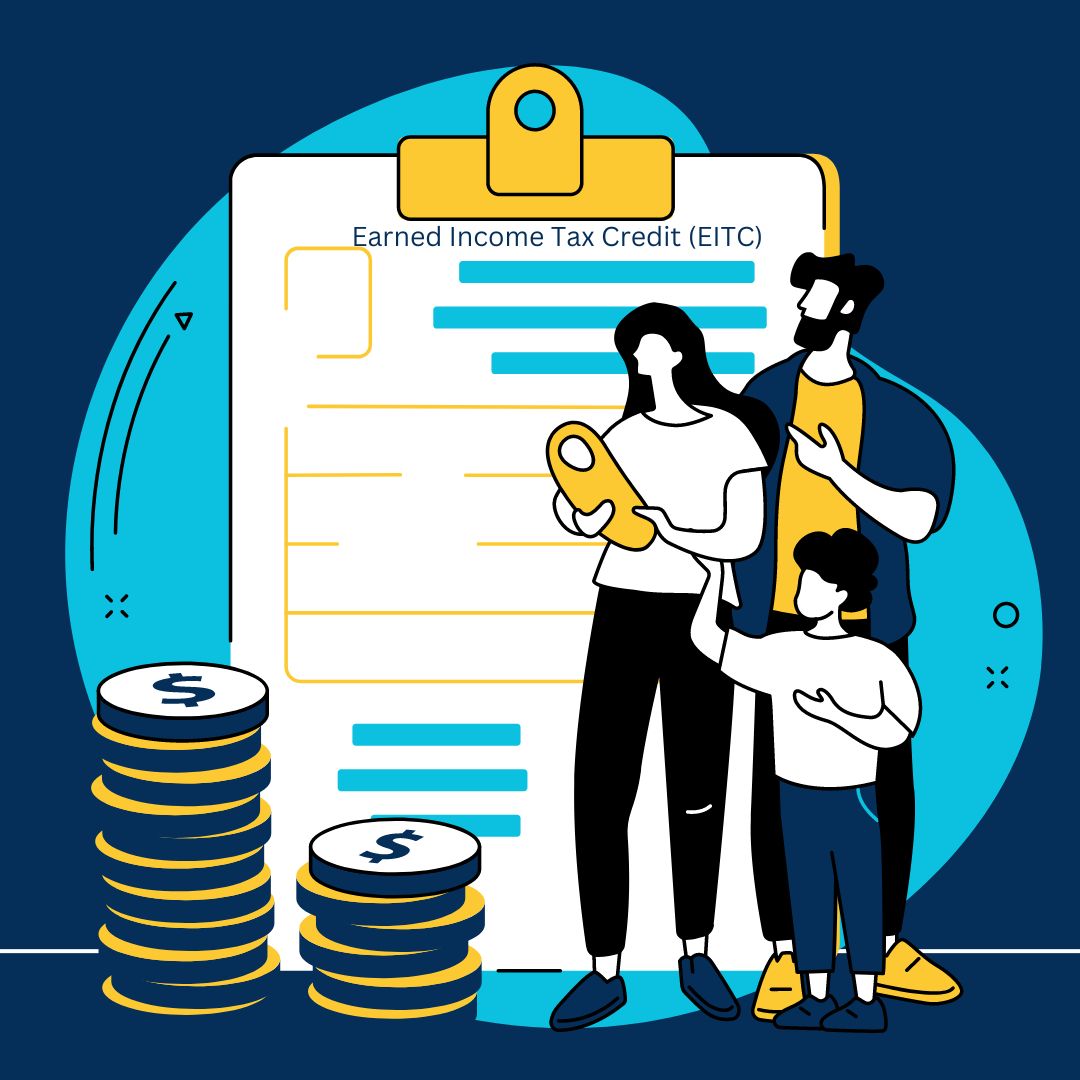
The Earned Income Tax Credit (EITC) stands as a significant financial benefit for low- to moderate-income earners, particularly those with children. However, eligibility extends beyond just having children; even workers without qualifying children can claim this credit under certain conditions. Here’s a comprehensive guide on how to qualify for and claim the EITC.
Basic Qualifying Rules for EITC:
- Earned Income: Your income must be under $63,398 for the tax year 2023.
- Investment Income: Must be less than $11,000.
- Social Security Number: You and anyone you claim must have a valid SSN by the tax return due date, including extensions.
- Citizenship/Residency: You must be a U.S. citizen or a resident alien for the entire year.
- Filing Status: You can file as single, head of household, qualifying widow(er), or married filing jointly. Special rules apply if married but filing separately.
Special Rules for Certain Groups:
- Military Personnel: Specific guidelines apply for those serving abroad.
- Clergy Members: There are unique considerations for income from ministerial duties.
- Disabled Individuals: Additional benefits might be available.
Filing Status Details:
- Married Filing Jointly: Simplifies eligibility for many.
- Head of Household: Requires you to maintain a home for your qualifying child or other dependent.
- Qualifying Widow(er): Must meet specific conditions related to the death of a spouse and maintaining a household.
Claiming EITC Without a Qualifying Child:
If you don’t have a qualifying child, you can still claim the EITC provided you:
- Meet all basic EITC rules.
- Have your main home in the U.S. for more than half the year.
- Are not claimed as a dependent by someone else.
- Are at least 25 but under 65 years old.
Social Security Number Requirements:
For EITC purposes, a valid SSN must be for employment, not just for tax purposes. This excludes ITINs and ATINs.
When to Expect Your Refund:
The IRS typically issues EITC refunds by March 1 if you opt for direct deposit, assuming there are no issues with your return. You can track your refund status online or via the IRS2Go app.
Conclusion:
The EITC is designed to help those who need it most, offering not just a tax break but a significant financial boost. Whether you’re a parent, single, or part of a couple, understanding the eligibility criteria can lead to substantial savings or refunds. Always consult the latest IRS publications or use online tools like the EITC Qualification Assistant for personalized guidance. Remember, even small changes in your situation can affect your eligibility, so staying informed is key to maximizing this benefit.
Disclaimer: The information provided above is not meant to be legal or tax advise. You should consult your CPA and attorney to determine the best course of action for your situation.
Mitzi E. Sullivan, CPA is a cloud based professional services provider
specializing in cloud accounting.